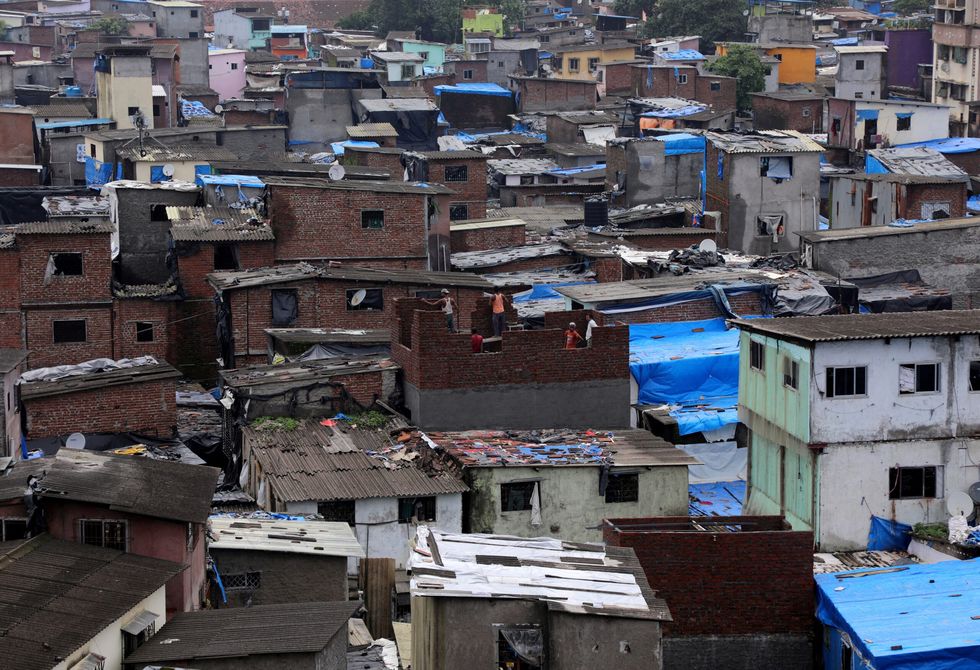BRITISH MPs have flagged Beijing's "bullying behaviour" in the border dispute with India amid calls to check the UK's "dependence" on China's.
The Indo-Chinese border standoff came up in Parliament when Conservative lawmaker Ian Duncan Smith raised the issue during a discussion on the Chinese government's ill-treatment of the Uyghur minority in Xinjiang province.
"Given the Chinese government’s appalling record on human rights, their attack on freedoms in Hong Kong, their bullying behaviour in border disputes from the South China seas to India, their blatant breaching of the rules-based order governing the free market and their delayed declaration on Covid-19, will the government now initiate an internal review of the UK’s dependence on China, with a view to significantly reducing that dependence,” he said.
Minister for Asia Nigel Adams said that the UK government had regularly been regularly raising its concerns with China over various issues.
"On a full government review, our approach to China remains clear-eyed and is rooted in our values and interests," he added. "It has always been the case that when we have concerns we raise them, and that where we need to intervene we will."
Labour MP Stephen Kinnock also pointed to China's "increasingly belligerent" towards its own people and neighbouring countries.
"Does the minister recognise that the CCP’s [Chinese Communist Party] actions in Xinjiang reflect a wider pattern of behaviour of increasingly authoritarian policies at home and aggressive expansionism abroad, including in Hong Kong, Ladakh and the South China sea?" he questioned.
Adams answered that the UK had been "very active" on these issues, playing a leading role in raising all concerns bilaterally and at the UN.
"All British companies involved in the region must consider carrying out proper due diligence to ensure that human rights violations have not been taking place in their supply chains," he added.
Last week, Boris Johnson had made his first statement related to the India-China border conflict, describing it as "a very serious and worrying situation".
Getting tough with 'hostile state vendors'
The prime minister has toughened his rhetoric on China's Huawei, cautioning Beijing that he would protect critical infrastructure from "hostile state vendors" as he expressed deep concern over a new security law for Hong Kong.
Johnson, who in January allowed Huawei a limited role in Britain's 5G network, has faced intense pressure from the US and some British lawmakers to ban the telecommunications equipment maker on security grounds.
But the Covid-19 crisis and a row with China over a crackdown in the former British colony of Hong Kong has damaged relations between Beijing and London just as Johnson prepares to revisit his decision on Huawei Technologies.
Asked if the security law would influence Britain's decision on whether or not to restrict Huawei, Johnson said: "I'm not going to get drawn into Sinophobia because I'm not a Sinophobe."
"On Huawei, the position is very, very simple," he told reporters. "I do want to see our critical national infrastructure properly protected from hostile state vendors, so we need to strike that balance and that's what we'll do."
Huawei, considered a "high risk vendor" by Britain, was granted a limited role in building the country's 5G networks in January, after the government said it could manage the risks.
The decision dismayed the US, which said Beijing could use Huawei's telecoms equipment to spy. Huawei, however, repeatedly denied the claims.
Britain's National Cyber Security Centre has studied the impact of the new restrictions on Huawei's resilience as a supplier, and its findings will underpin the government's decision on whether Huawei has a long-term future in Britain's networks.
Its involvement in 5G was capped at 35 per cent, and it was excluded it from the data-heavy core of the network in January.
But China's parliament passed national security legislation for Hong Kong on Tuesday.
Britain, which had promised to consider an international response if China imposed the law, said the move was grave and that its decision on what to do would come later.
"We are obviously deeply concerned about the decision to pass the National Security Law in Beijing as it affects Hong Kong," Johnson said.
"We will be looking at the law very carefully, we want to scrutinise it properly, to understand whether it's in conflict with the joint declaration between the UK and China."





 Dharavi slum in Mumbai
Dharavi slum in Mumbai













During the hearing, Clifford denied all the charges except for the rape charge, which was added to the indictment at the session. (Photo: Hertfordshire Police /Handout via REUTERS)
Man pleads not guilty to murder of BBC presenter's family
A 26-year-old man has pleaded not guilty to charges of murdering the wife and two daughters of BBC sports commentator John Hunt in a crossbow and knife attack.
Kyle Clifford, who also faces charges of rape, appeared via video link at Cambridge Crown Court on Thursday.
Clifford, arrested in July after a manhunt, is charged with three counts of murder, one count each of rape and false imprisonment, and two counts of possessing offensive weapons – a 10-inch knife and a crossbow.
During the hearing, Clifford denied all the charges except for the rape charge, which was added to the indictment at the session.
He is expected to enter a plea for that charge at a later date.
The victims were Carol Hunt, 61, wife of horseracing commentator John Hunt, and their daughters Louise, 25, and Hannah, 28.
An earlier hearing revealed that Louise had been found tied up and that both she and her sister had been shot with a crossbow, while their mother had been stabbed with a knife.
The fatal attack occurred at the family’s home in Bushey, a commuter town near Watford, northwest of London.
(With inputs from AFP)